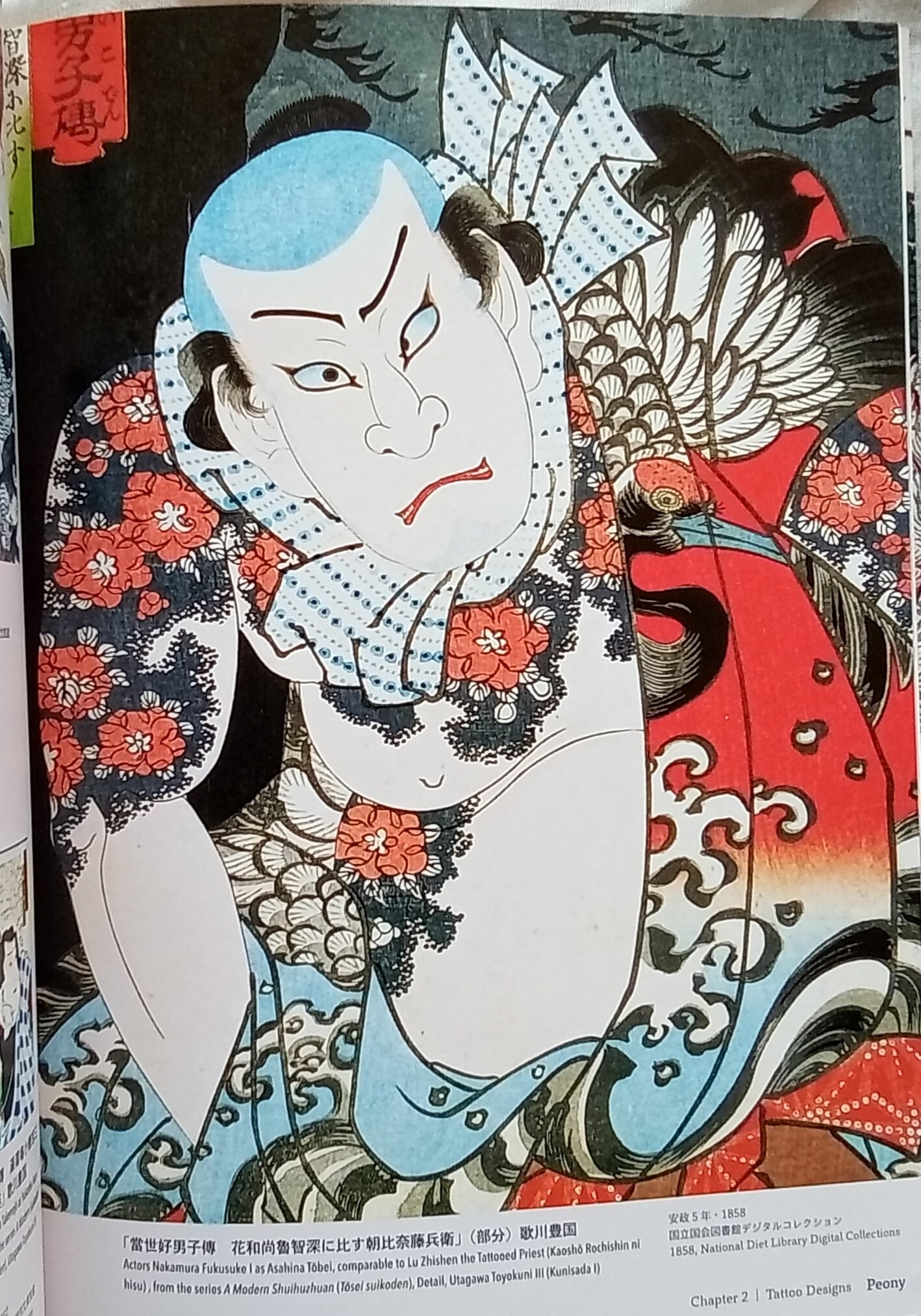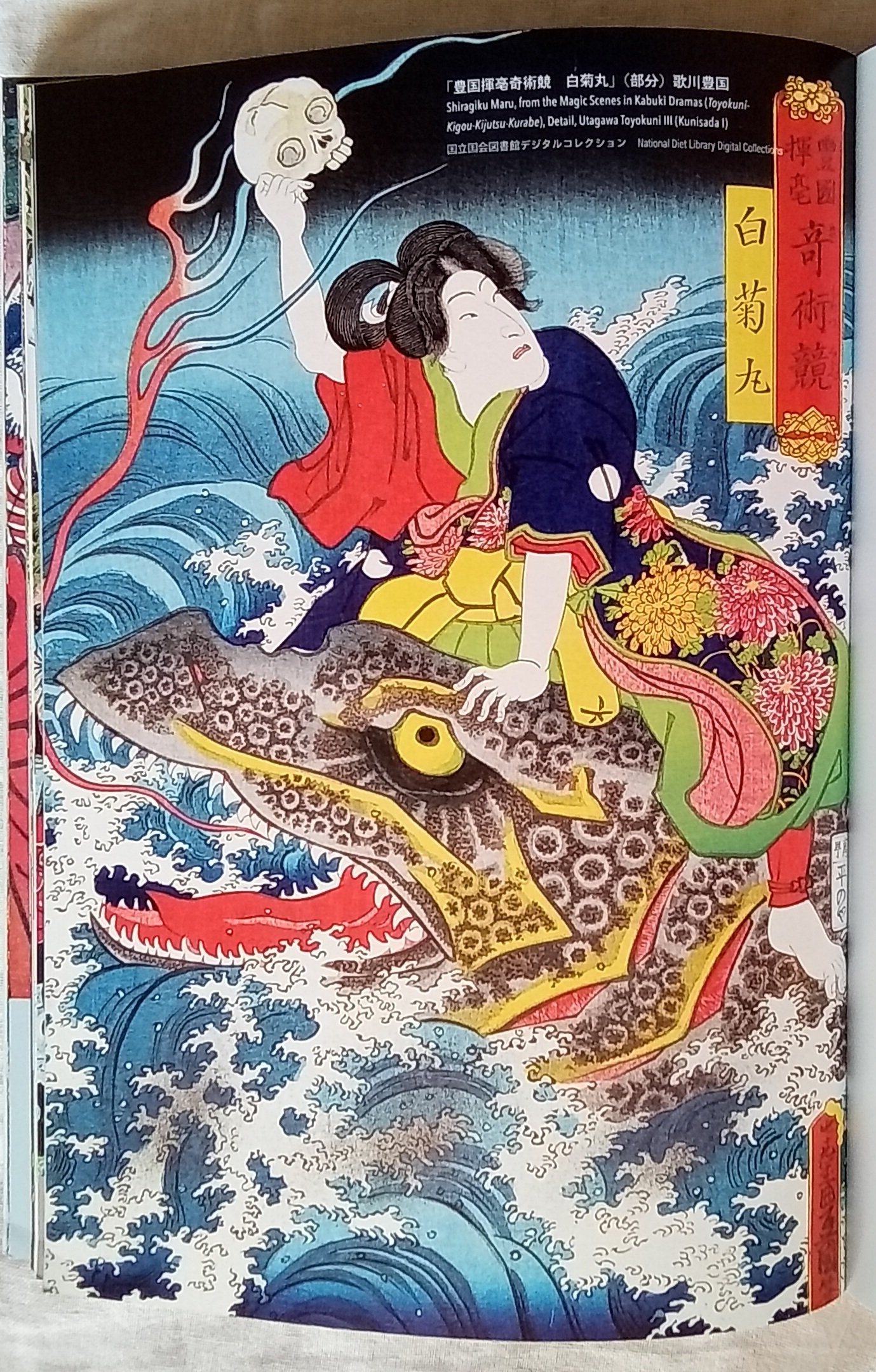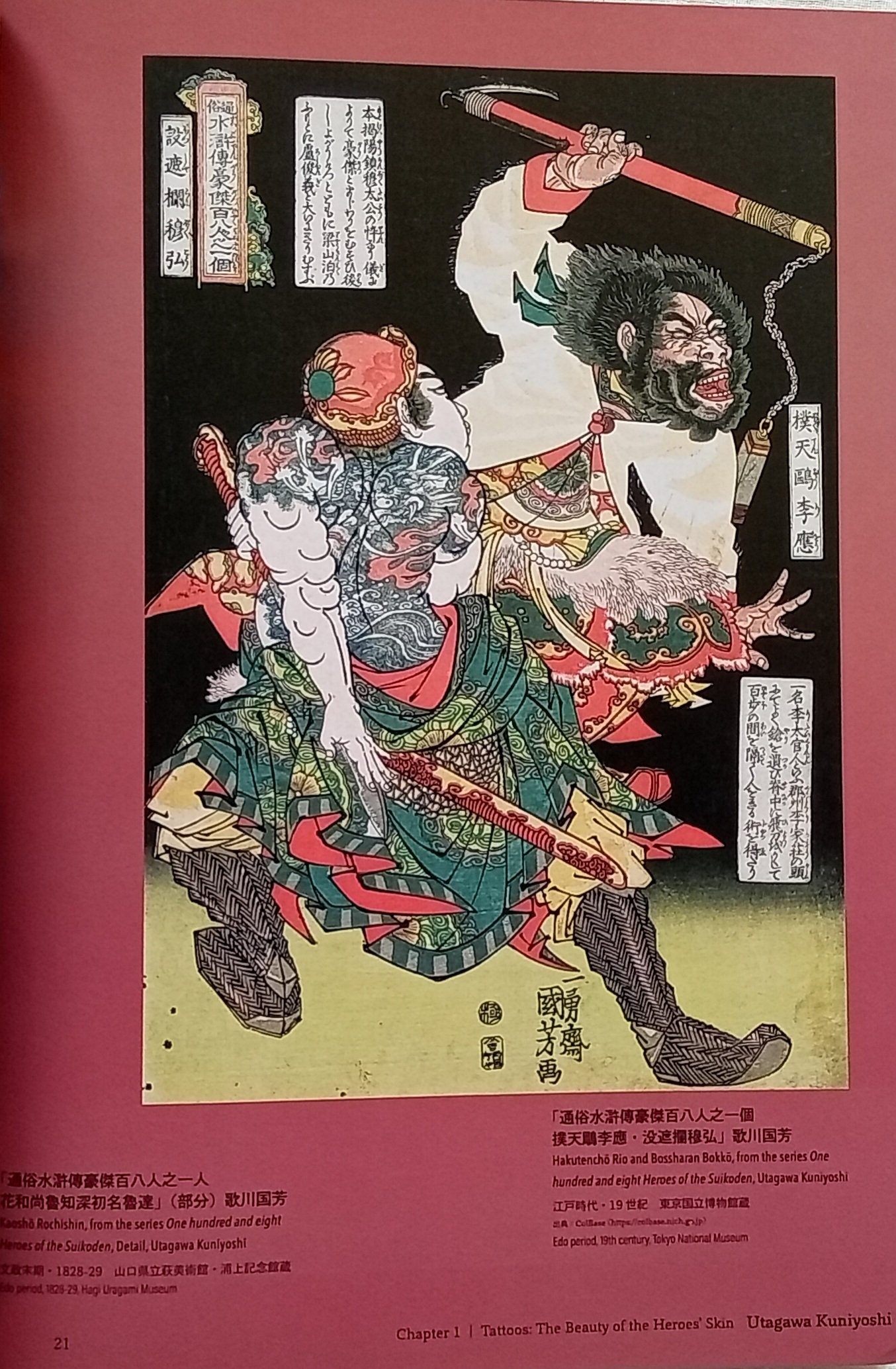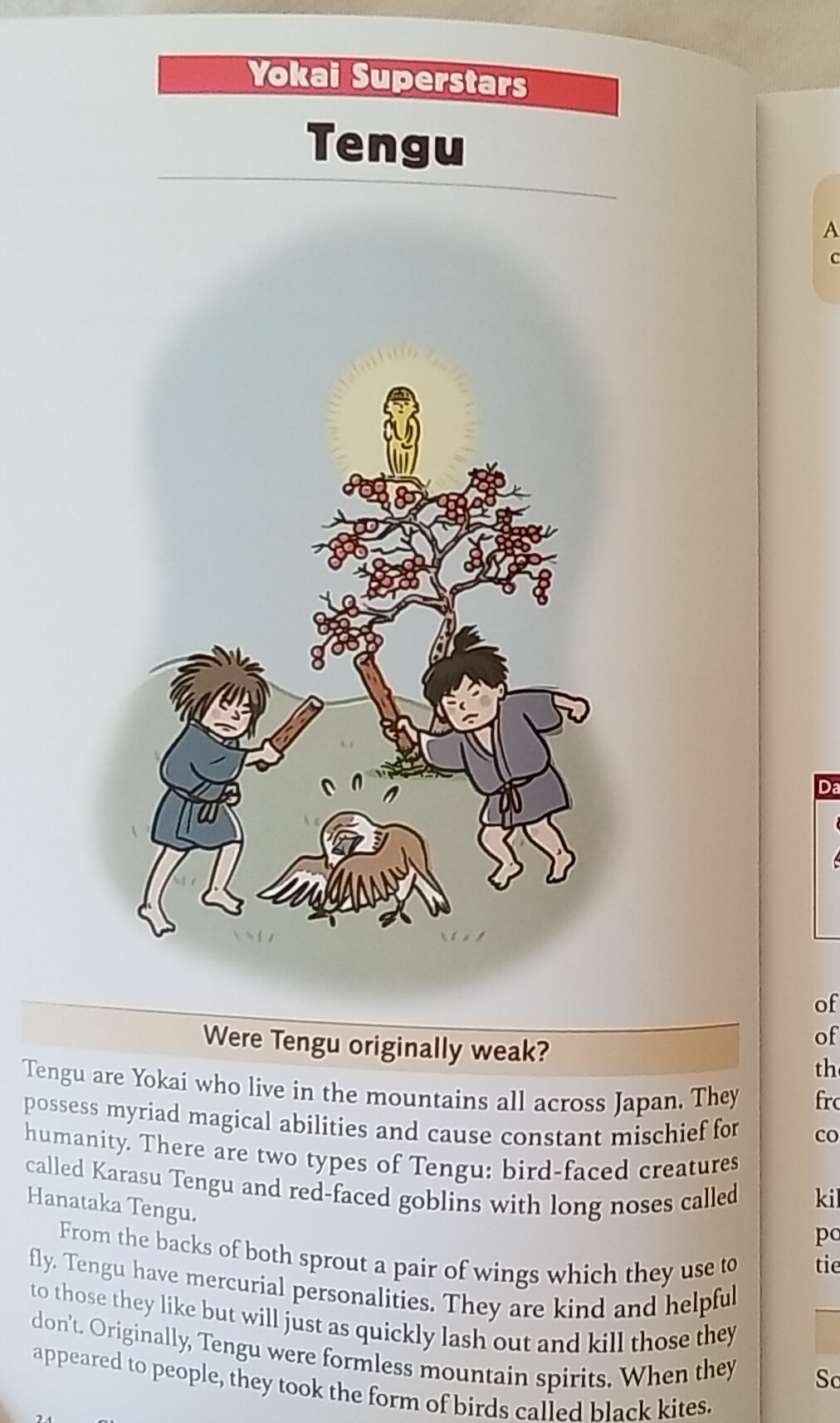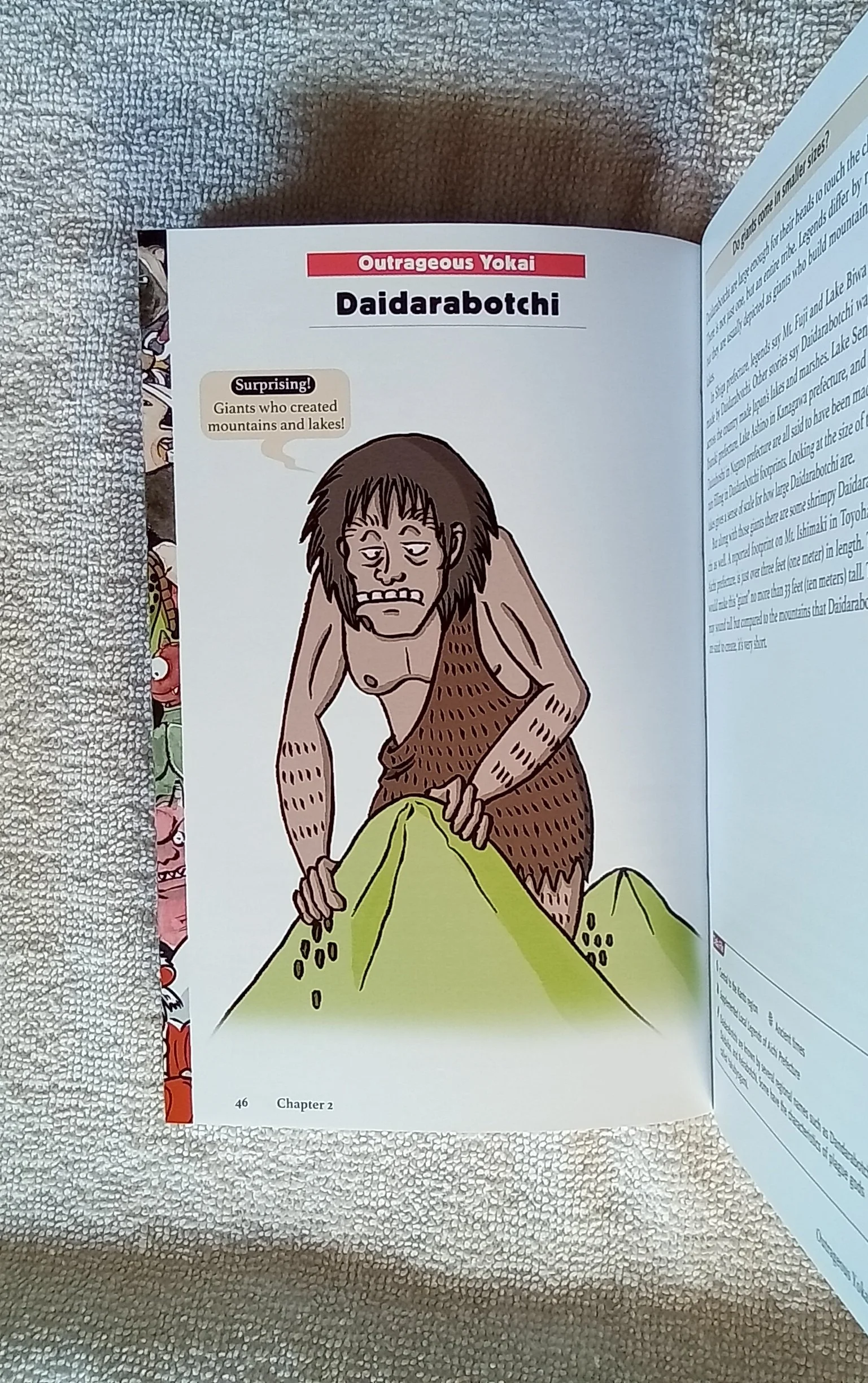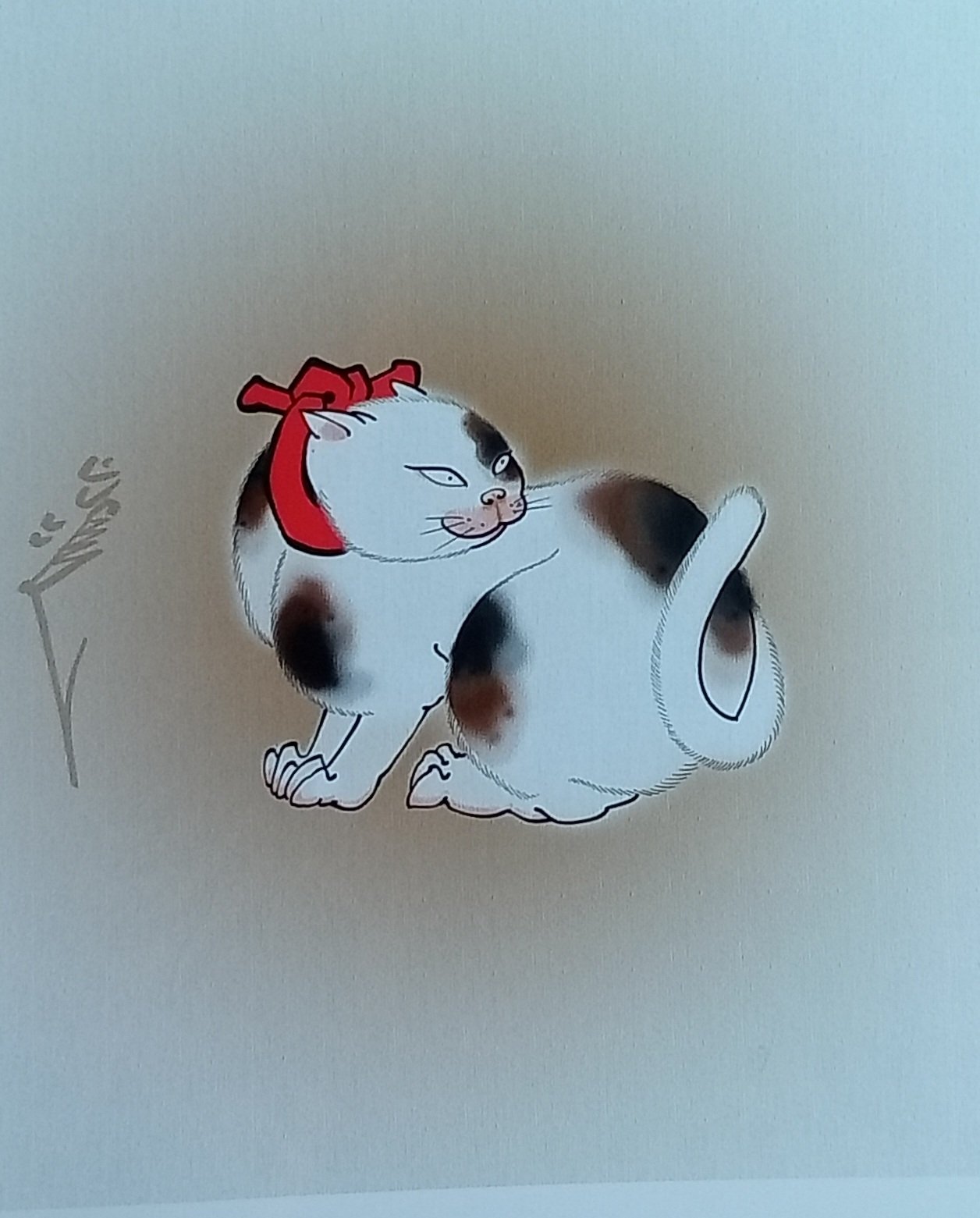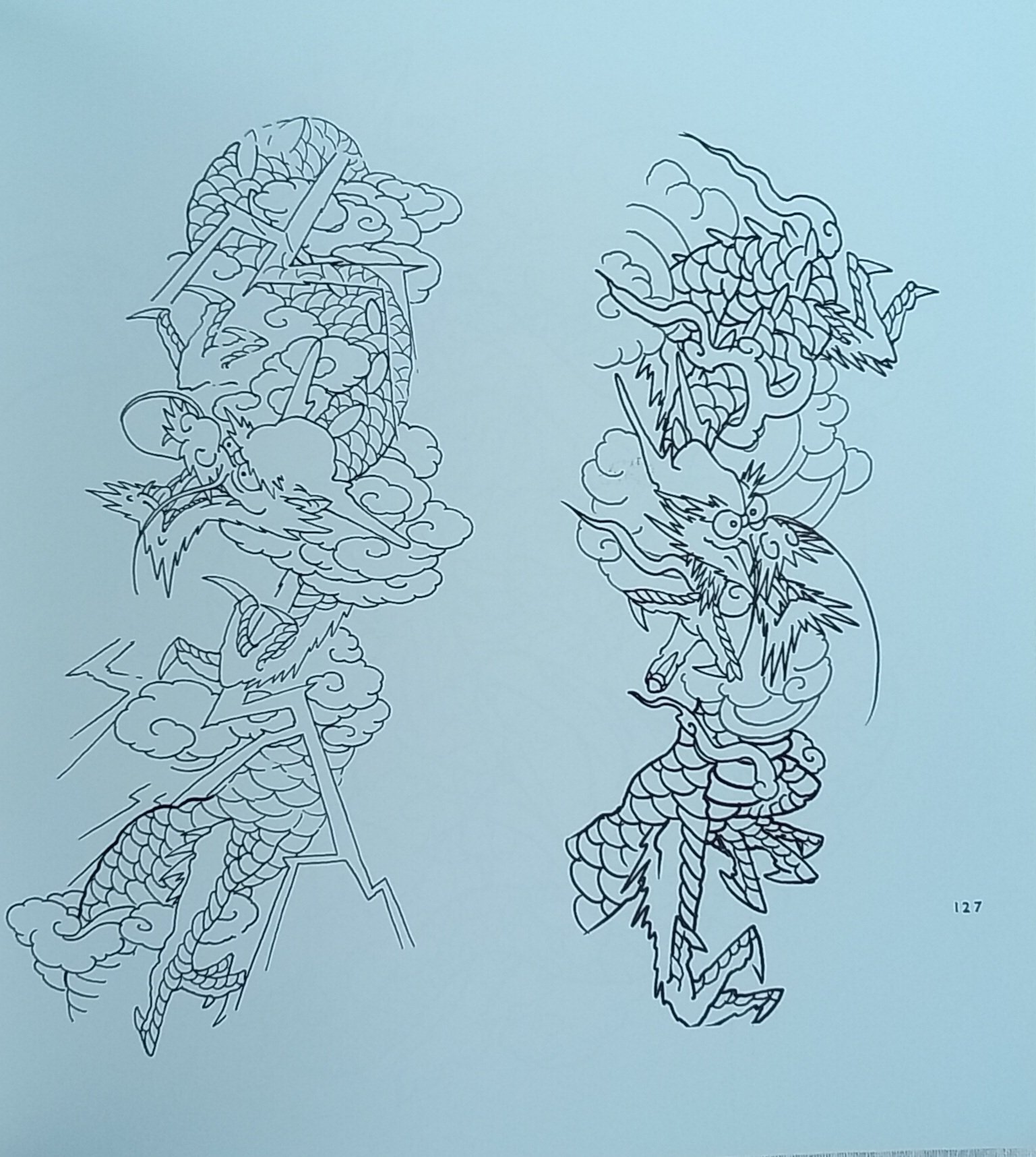TATTOO: The Iconography of Japan
TATTOO: The Iconography of Japan
208pgs , 7x10"
In this book, the beauty and design of Japanese tattoos are explored through ukiyo-e prints and explained in detailed bilingual Japanese and English text.
In recent years, the number of ukiyo-e tattoo designs, or tattoo designs using ukiyo-e motifs, has increased, and ukiyo-e are becoming more popular among tattoo lovers.
First, Chapter 1 presents the artworks by artist, beginning with Kuniyoshi Utagawa, to introduce the beauty and design of tattoos by artists such as Toyokuni Utagawa, Yoshitoshi Tsukioka, Yoshiiku Ochiai, Kunichika Toyohara, and Yoshitora Utagawa.
In Chapter 2, tattoo designs based on ukiyo-e are presented and grouped by motif, specifically including examples such as Shinto and Buddhist deities (Fujin, Raijin…); animals (dogs, cats, wolves, lions, monkeys…); plants (peonies, cherry blossoms, chrysanthemums…); yokai monsters (Hannya, skulls, bakenekos...); caricatures (Otsu-e, Okame, Hyottoko…) and more.
This book appeals not only to lovers of traditional Japanese culture, but also to tattoo-lovers and tattoo artists, who can use it as a reference for designs.In this book, the beauty and design of Japanese tattoos are explored through ukiyo-e prints and explained in detailed bilingual Japanese and English text.
TATTOO: The Iconography of Japan
208pgs , 7x10"
In this book, the beauty and design of Japanese tattoos are explored through ukiyo-e prints and explained in detailed bilingual Japanese and English text.
In recent years, the number of ukiyo-e tattoo designs, or tattoo designs using ukiyo-e motifs, has increased, and ukiyo-e are becoming more popular among tattoo lovers.
First, Chapter 1 presents the artworks by artist, beginning with Kuniyoshi Utagawa, to introduce the beauty and design of tattoos by artists such as Toyokuni Utagawa, Yoshitoshi Tsukioka, Yoshiiku Ochiai, Kunichika Toyohara, and Yoshitora Utagawa.
In Chapter 2, tattoo designs based on ukiyo-e are presented and grouped by motif, specifically including examples such as Shinto and Buddhist deities (Fujin, Raijin…); animals (dogs, cats, wolves, lions, monkeys…); plants (peonies, cherry blossoms, chrysanthemums…); yokai monsters (Hannya, skulls, bakenekos...); caricatures (Otsu-e, Okame, Hyottoko…) and more.
This book appeals not only to lovers of traditional Japanese culture, but also to tattoo-lovers and tattoo artists, who can use it as a reference for designs.In this book, the beauty and design of Japanese tattoos are explored through ukiyo-e prints and explained in detailed bilingual Japanese and English text.
TATTOO: The Iconography of Japan
208pgs , 7x10"
In this book, the beauty and design of Japanese tattoos are explored through ukiyo-e prints and explained in detailed bilingual Japanese and English text.
In recent years, the number of ukiyo-e tattoo designs, or tattoo designs using ukiyo-e motifs, has increased, and ukiyo-e are becoming more popular among tattoo lovers.
First, Chapter 1 presents the artworks by artist, beginning with Kuniyoshi Utagawa, to introduce the beauty and design of tattoos by artists such as Toyokuni Utagawa, Yoshitoshi Tsukioka, Yoshiiku Ochiai, Kunichika Toyohara, and Yoshitora Utagawa.
In Chapter 2, tattoo designs based on ukiyo-e are presented and grouped by motif, specifically including examples such as Shinto and Buddhist deities (Fujin, Raijin…); animals (dogs, cats, wolves, lions, monkeys…); plants (peonies, cherry blossoms, chrysanthemums…); yokai monsters (Hannya, skulls, bakenekos...); caricatures (Otsu-e, Okame, Hyottoko…) and more.
This book appeals not only to lovers of traditional Japanese culture, but also to tattoo-lovers and tattoo artists, who can use it as a reference for designs.In this book, the beauty and design of Japanese tattoos are explored through ukiyo-e prints and explained in detailed bilingual Japanese and English text.



